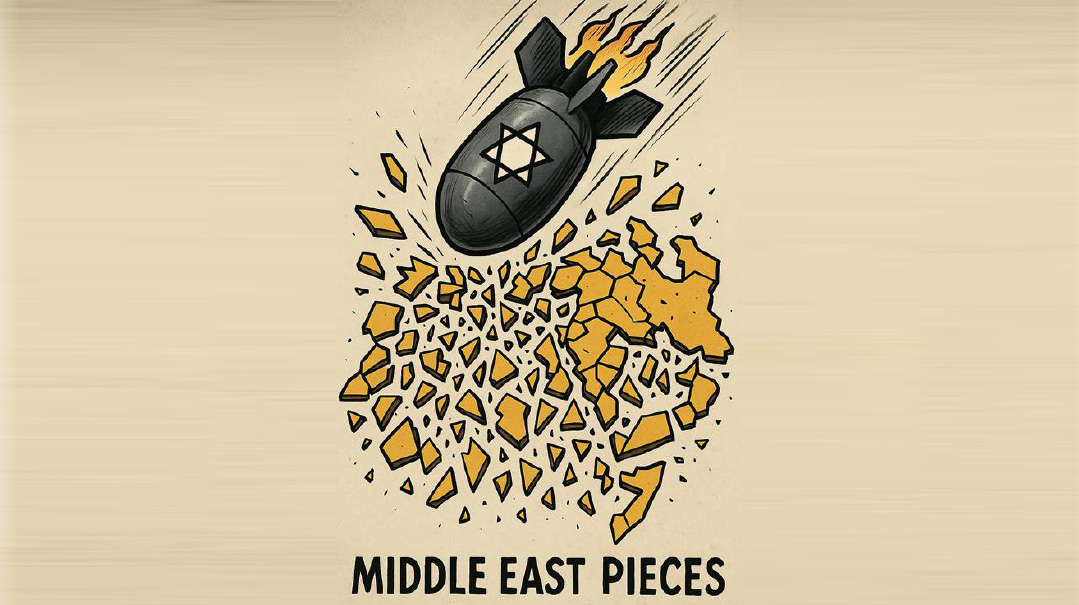Of Bein Hazmanim and Real Life

The external prompt of yeshivah is positive, but the key point remains the same: whether the bochur develops his own drive for growth, independent of his environment
How many parents, given the choice, would gladly resurrect the prewar yeshivah schedule in which there was no official summer bein hazmanim, and instead, individual bochurim took time off in a woodland dacha while the yeshivah continued as before?
Far be it from me, of course, to suggest such heresy. I’m a mere mouthpiece for parents scared witless by their sons’ vacation antics. I’m also passing on the opinion of rescue personnel who would have preferred that yeshivah vacations not evolve from snoozes in a deckchair to hikes in Death Valley.
Curmudgeonly as this introduction sounds, though, this is actually a pro-bein hazmanim column. Whatever the merits of the summer break in particular, the institution deserves far more credit than it gets from either parents or mashgichim.
That’s because it’s not just a pressure valve, a chance for some downtime from intense yeshivah schedules. In a way, bein hazmanim is actually a bochur’s first taste of real life — one that’s hard to come by the rest of the year.
In what sense, you ask, can a weeks-long break involving late nights, later mornings, jetting off on vacation, and general lack of accountability be called “real life”?
The answer involves understanding that the unique longevity of the frum world’s educational framework also comes with gaps that bein hazmanim is well placed to plug.
In the United States, college enrollment has leapt since 2009 from 37 percent of the working-age population to 53 percent in 2021. That means that for vast numbers of people, life consists of classroom study for 16 years in succession.
If that sounds high, think about today’s frum world where yeshivah is a given, and in many circles, kollel increasingly is, too.
In secular terms, it’s like the school system being K-20; or 50 percent of the population studying for a master’s.
Thanks to the success of the yeshivah and kollel revolution, the scale of Torah learning is unprecedented.
But there’s an under-appreciated fact about the long-term institutional model: Length of time spent in learning isn’t always a predictor of avodas Hashem in the world outside.
We all know people who merited just a couple of years in yeshivah and continue growing afterwards — adding a kevius with their rav here, a shiur there, and generally growing over the years. We also know plenty of people who, after significant time in kollel, head the other way, becoming unrecognizable in the business world.
What’s the difference? To borrow from the world of engineering, it’s a question of propulsion.
From schools to beis medrash, yeshivah and kollel, our institutions do what institutions do best: generate a high standard of learning that uplifts the majority of students. But a key test is whether an individual bochur internalizes those lessons, and develops an engine of his own, or is propelled along by inertia — borne aloft by the environment of learning, without developing his own internal drive.
The “engine” metaphor is based on a fascinating passage in the Alter of Novardok’s Madreigas Ha’Adam about Noach. Chazal famously debate whether he was only considered great in comparison with his own, dissolute generation, or whether even in Avraham Avinu’s lofty times, he would have registered on the spiritual radar.
The dispute, explains the Alter, isn’t about how great Noach actually was; rather, what was the source of his greatness. Noach was like the train passenger traveling first class in wartime. Given the emergency, there’s no way to know whether he’s wealthy — and always travels first class — or whether he’s forced to dig deep and upgrade because of the circumstances.
Similarly, was it Noach’s internal engine, a search for truth that would have propelled him to great heights in any generation? Or was it an external prompt — in Noach’s case, the knowledge that amid such depravity, he had no choice but to grow — but in a more moral era, he would have remained an ordinary person, and not striven for greatness?
In our terms, of course, the external prompt of yeshivah is positive, but the key point remains the same: whether the bochur develops his own drive for growth, independent of his environment.
That question is central, because at whatever stage a young man emerges from “The System,” that engine — like a new car — will be road-tested.
The bochur or avreich who’s found real satisfaction in avodah might initially struggle to adjust to a world of daf yomi and workplace Minchahs, but he’ll find his equilibrium and new meaning.
The friend who was propelled along by others — while for all intents and purposes a good bochur — might feel suddenly bereft. For the first time, he can’t rely on his environment, and under the hood, there’s nothing to power him along.
That’s why bein hazmanim is such a crucial complement to zeman. In a system that is practically cradle-to-middle age, where else can a young man discover who he really is, and what he really stands for?
Yes, the shtiblach might be busy with speedy mid-morning Shacharises rattled off by oddly clad bochurim, but there’s a chance that the result is real — a reflection of what the bochur really is, rather than a product of institutional behavior.
Learning may be down to a bare minimum, but when nobody’s really holding you accountable, that shnayim mikra may well represent something more authentic than a half-seder under the mashgiach’s watchful eye.
Authenticity in ruchniyus, like a solid foundation on an office tower, is the only way to build something lasting. There is nothing so liberating as discovering red lines that are truly one’s own, some corner of avodas Hashem — however small — that is really yours.
Bein hazmanim has all too many road accidents — from which we pray to be spared in the weeks ahead. But as the metaphorical road of life looms over the horizon for our bochurim, the vacation remains a vital institution — the only way to check that the engine is ready for the long haul.
(Originally featured in Mishpacha, Issue 973)
Oops! We could not locate your form.




